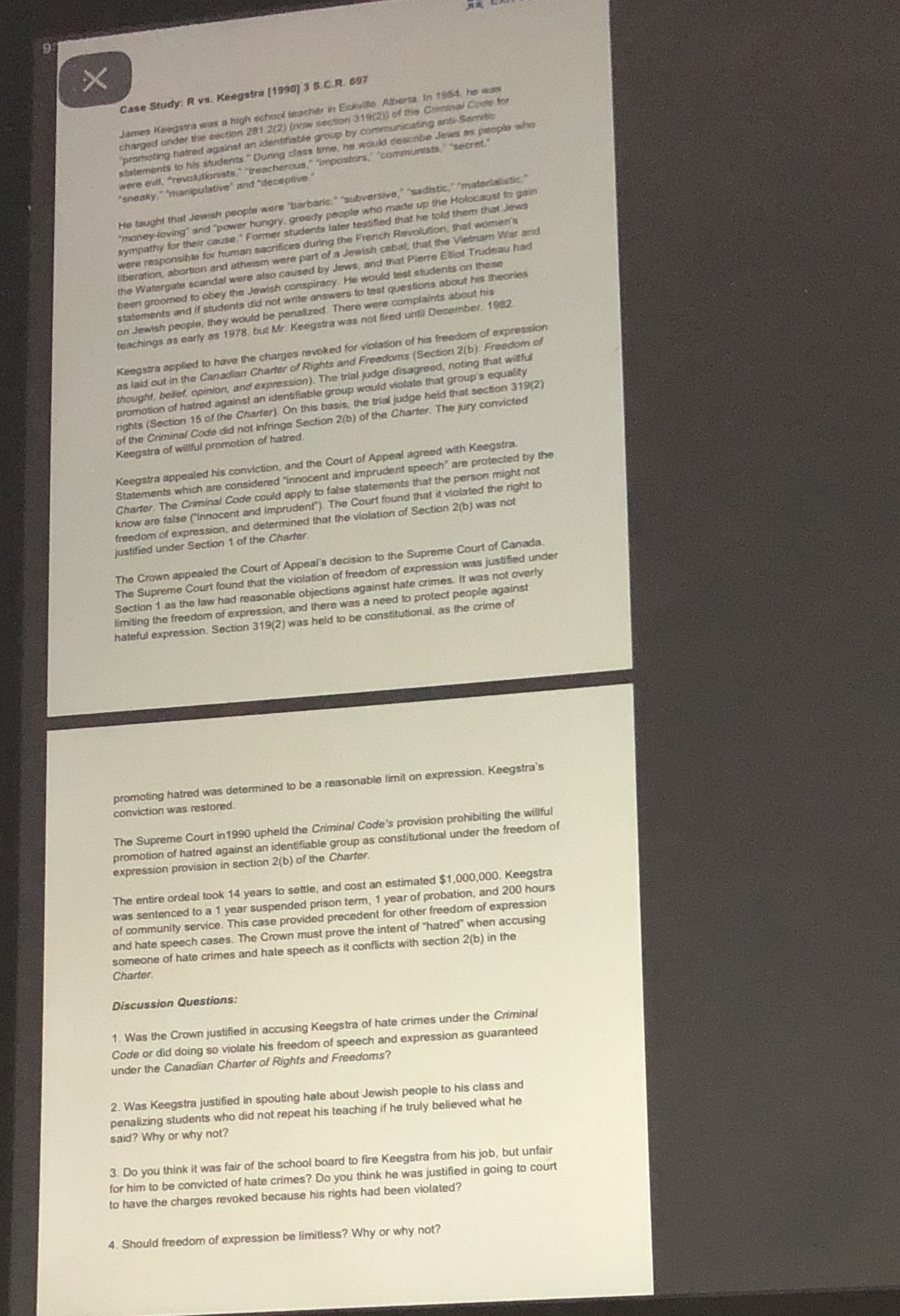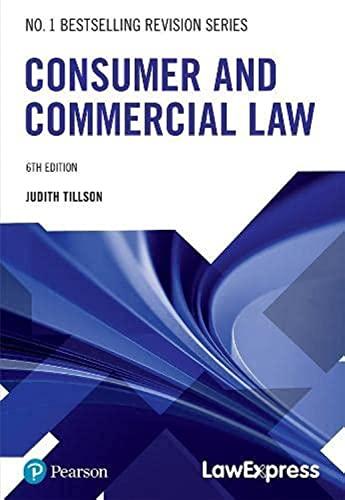X Case Study: R vs. Keegatra [1990) 3 5.C.R. 697 James Keegstra was a high school teacher in Eckvito Atberta In 1984, he wan charged under the section 281 2(2) (now section 319(2)) of the Cominal Code for "promoting hatred against an identifiable group by con icating anti Semite statements to his students. " During class time, he would describe dows a people who were evil, "revolutionists," "treacherous," impostors, " "communists,""secret," "sneaky," "manipulative" and "deceptive He taught that Jewish people were 'barbaric," "subversive," "sadistic,"material "money loving" and "power hungry. greedy people who made up the Holocaust to gain sympathy for their cause. " Former testified that he told them that Jews were responsible for human sa ces during the French Revolution, that women's liberation abortion and atheist it of a Jewish cabal, that the Vietrism War and the Watergate scandal were a d by Jews, and that Pierre Elliot Trudeau had been groomed to obey the Je y. He would test students or these statements and if students did not wr o test questions about his theories on Jewish people. they would be penalized. There w were complaints about his teachings as early as 1978, but Mr. Keegst not fired until December 1982 Keegstra applied to have the charges revoked for violation of his freedom of expression as laid out in the Canadian Charter of Rights and Freedoms (Section 2(b) Freedom of thought, belief, opinion, and expression). The trial judge disagreed, noting that willful promotion of hatred against an identifiable group would violate that group's equality rights (Section 15 of the Charter) On this basis, the trial judge held that section 319(2) of the Criminal Code did not infringe Section 2(b) of the Charter. The jury convicted Keegstra of willful promotion of hatred Keegatra appealed his conviction, and the Court of Appeal agreed with Keegstra. Statements which are cons nocent and imprudent s h' are protected by the Charter. The Criminal Code could apply to false statements that the person might not know are false (innocent and imprudent"). The Court found that it violated the right to freedom of expression, and determined that the violation of Section 2(b) was not justified under Section 1 of the Charter. The Crown appealed the Court of Appeal's decision to the Supreme Court of Canada. The Supreme Court found that the violation of freedom of expression was justified under Section 1 as the law had reasonable objections against hate crimes. It was not overly limiting the freedom of expression, and there was a need to protect people against hateful expression. Section 319(2) was held to be constitutional, as the crime of promoting hatred was determined to be a reasonable limit on expression. Keegstra's conviction was restored. The Supreme Court in 1990 upheld the Criminal Code's provision prohibiting the willful promotion of hatred against an identifiable group as constitutional under the freedom of expression provision in section 2(b) of the Charter. The entire ordeal took 14 years to settle, and cost an estimated $1,000,000. Keegstra was sentenced to a 1 year suspended prison term, 1 year of probation, and 200 hours of community service. This case provided precedent for other freedom of expression and hate speech cases. The Crown must prove the intent of "hatred" when accusing Charter. someone of hate crimes and hate speech as it conflicts with section 2(b) in the Discussion Questions: 1. Was the Crown justified in accusing Keegstra of hate crimes under the Criminal Code or did doing so violate his freedom of speech and expression as guaranteed under the Canadian Charter of Rights and Freedoms? 2. Was Keegstra justified in spouting hate about Jewish people to his class and penalizing students who did not repeat his teaching if he truly believed what he said? Why or why not? 3. Do you think it was fair of the school board to fire Keegstra from his job, but unfair for him to be convicted of hate crimes? Do you think he was justified in going to court to have the charges revoked because his rights had been violated? 4. Should freedom of expression be limitless? Why or why not







